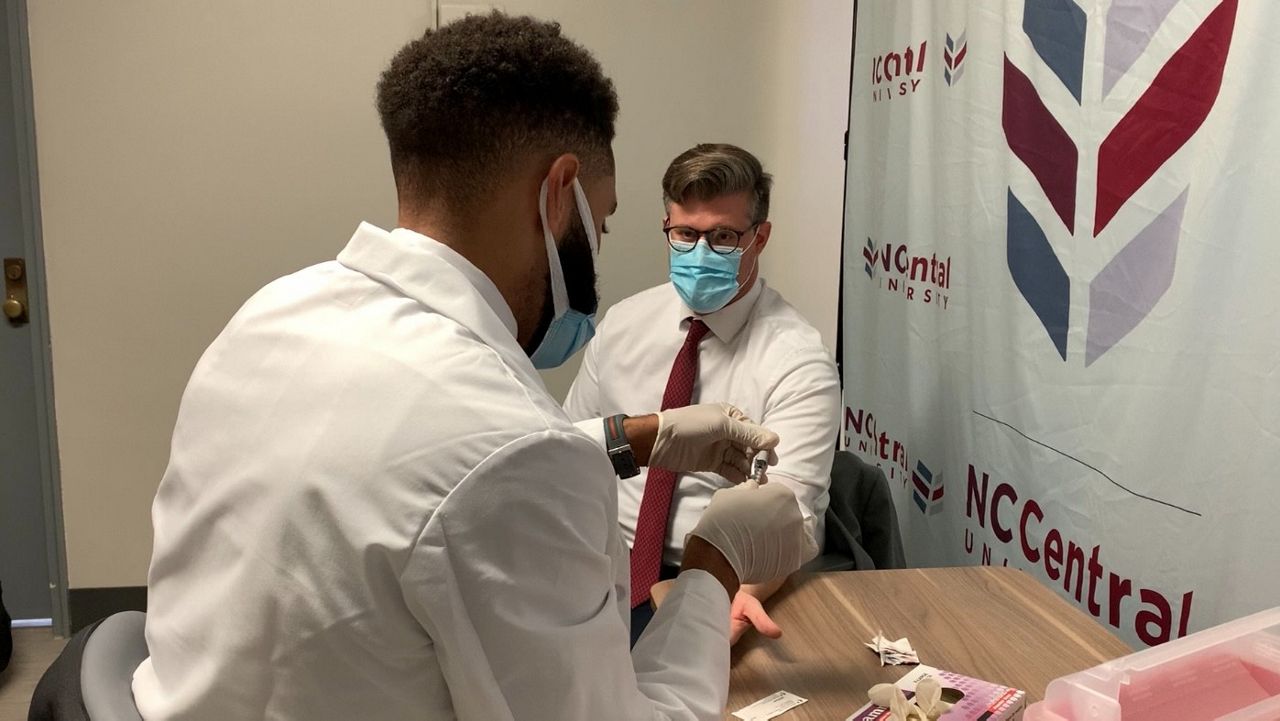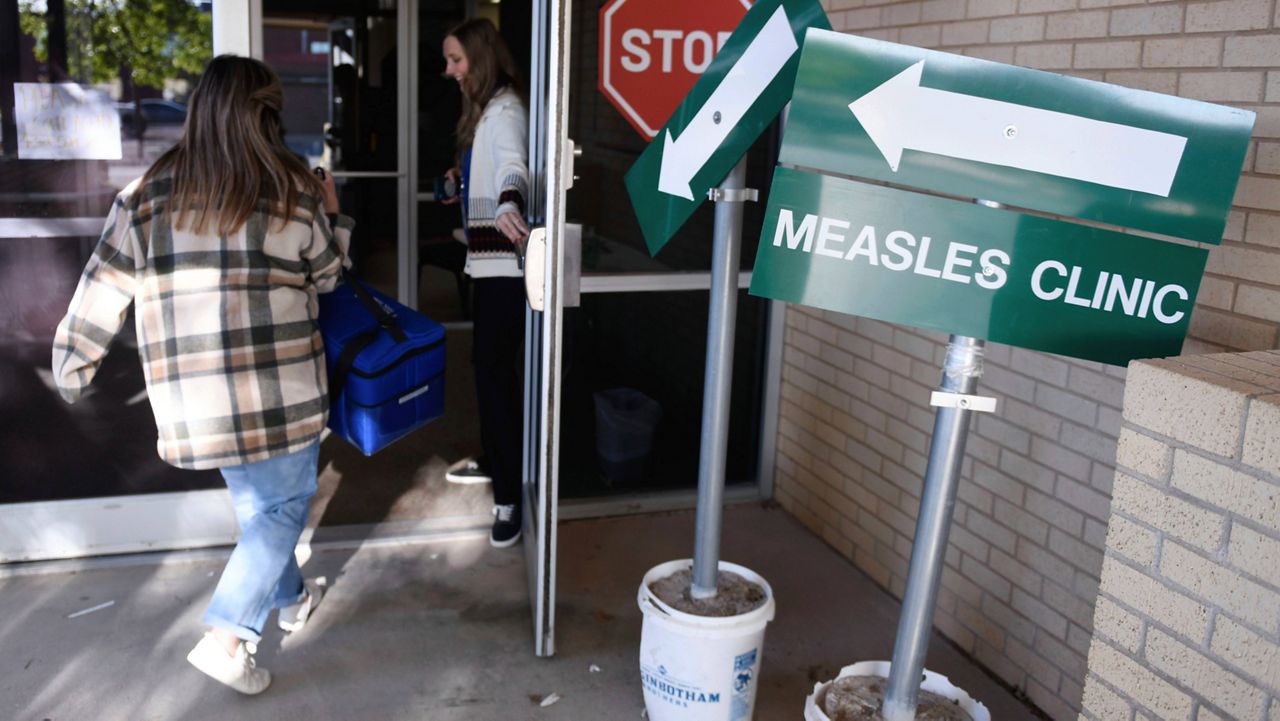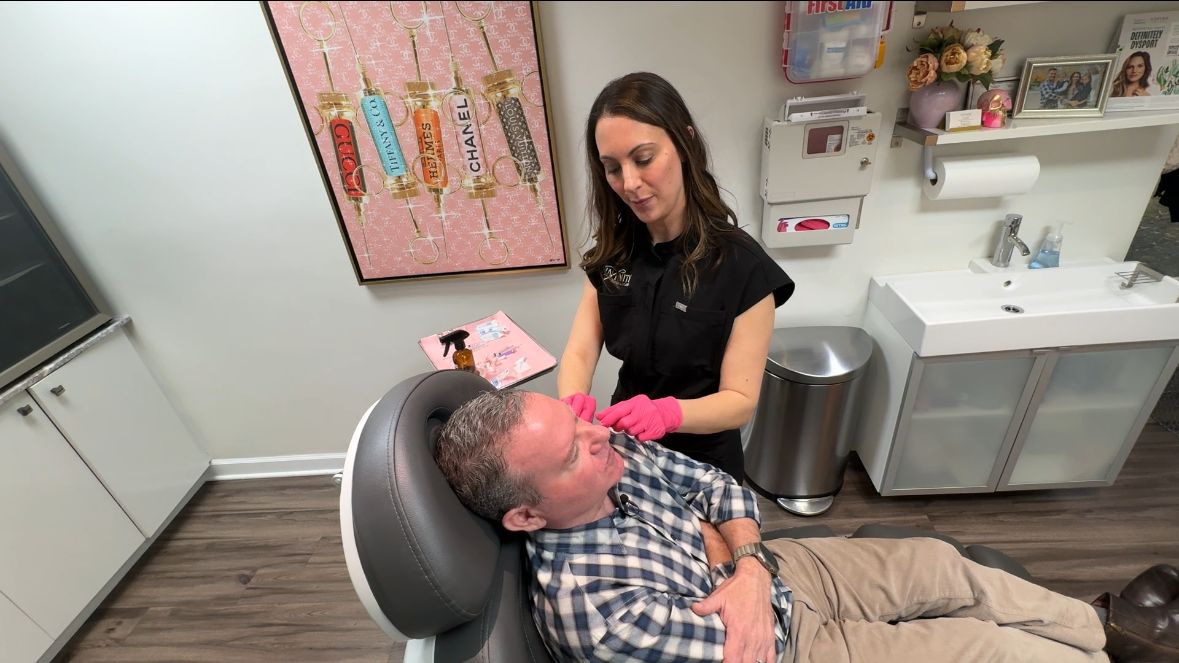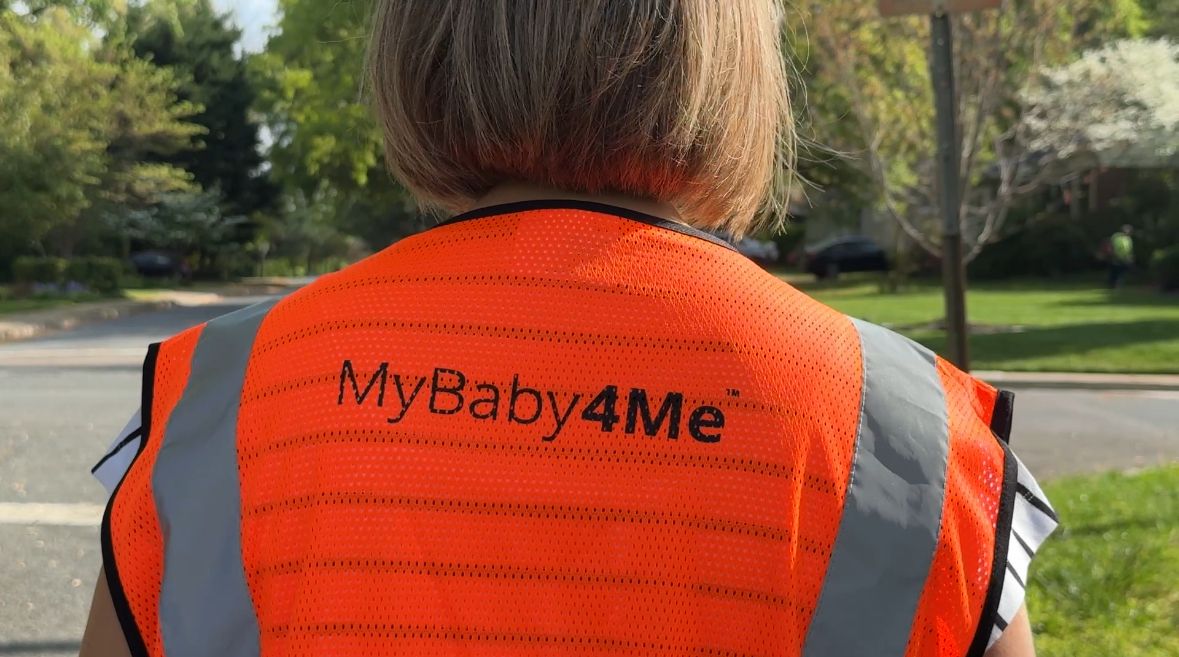The secretary of the N.C. Department of N.C. Health and Human Services wants people most affected by monkeypox to get the vaccine that helps protect against the virus. That’s why Kody Kinsley said he chose to receive his first shot on N.C. Central’s campus Thursday.
A high amount of moneypox cases have been found in gay, bisexual or men who have sex with men
There are almost 400 cases of monkeypox in the state
DHHS Secretary Kody Kinsley got his moneypox vaccine at N.C. Central's campus Thursday
DHHS data shows nearly 70% of all cases are in Black men. Almost 100% of all cases are still in gay, bisexual or men who have sex with men. The state health department expanded eligibility for who can get the monkeypox shot.
Kinsley said when there’s a health disparity you address it.
“We want to make sure that our HBCUs across the state and our other minority serving institutions are partnering with us to serve their communities and their student populations as folks return to campus to get access to vaccinations. We’ve been prioritizing them as a deployment," he said.
There are almost 400 cases of monkeypox in the state.
“When we saw COVID disproportionately impacting people in nursing homes, we focused our vaccines and our resources there first. This is why we want a focused deployment of resources here at the student health center and others across the state,” he said.
NCCU’s communications director said the university has received a limited supply of monkeypox vaccines and has begun distributing to eligible students and employees.
Vaccines are available to protect against monkeypox or to reduce disease severity.
NCDHHS has expanded the vaccine eligibility criteria to include:
- Anyone who had close contact in the past two weeks with someone who has been diagnosed with monkeypox
- Gay, bisexual or other men who have sex with men, or transgender individuals, who are sexually active
- People who have had sexual contact with gay, bisexual or other men who have sex with men, or transgender individuals in the past 90 days
- People living with HIV, or taking medication to prevent HIV (PrEP), or who were diagnosed with syphilis in the past 90 days









